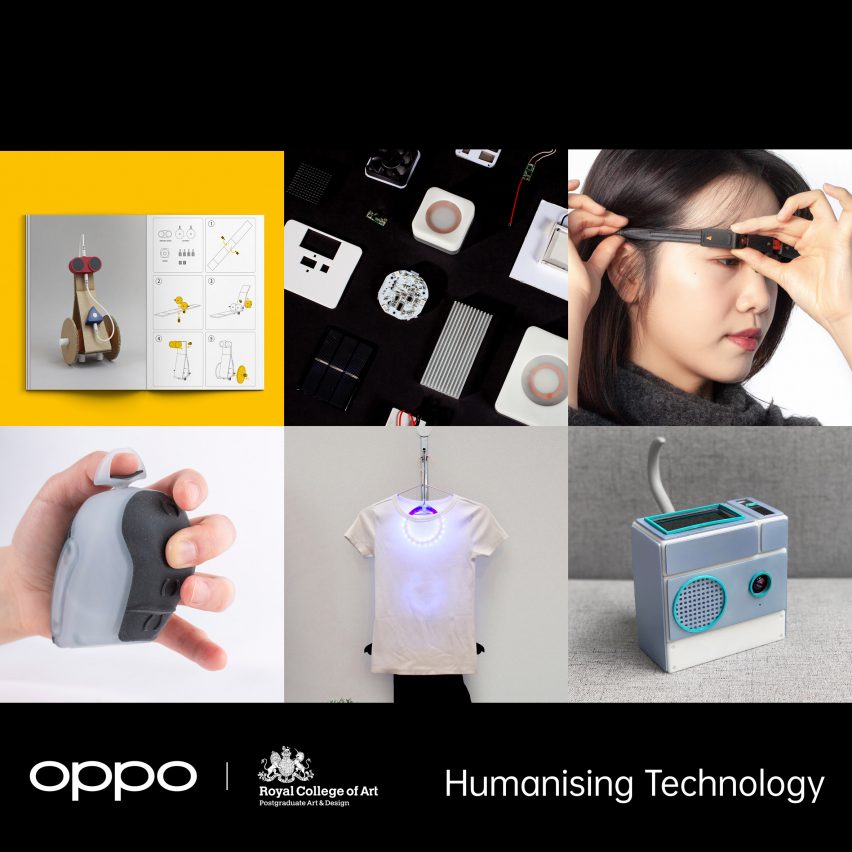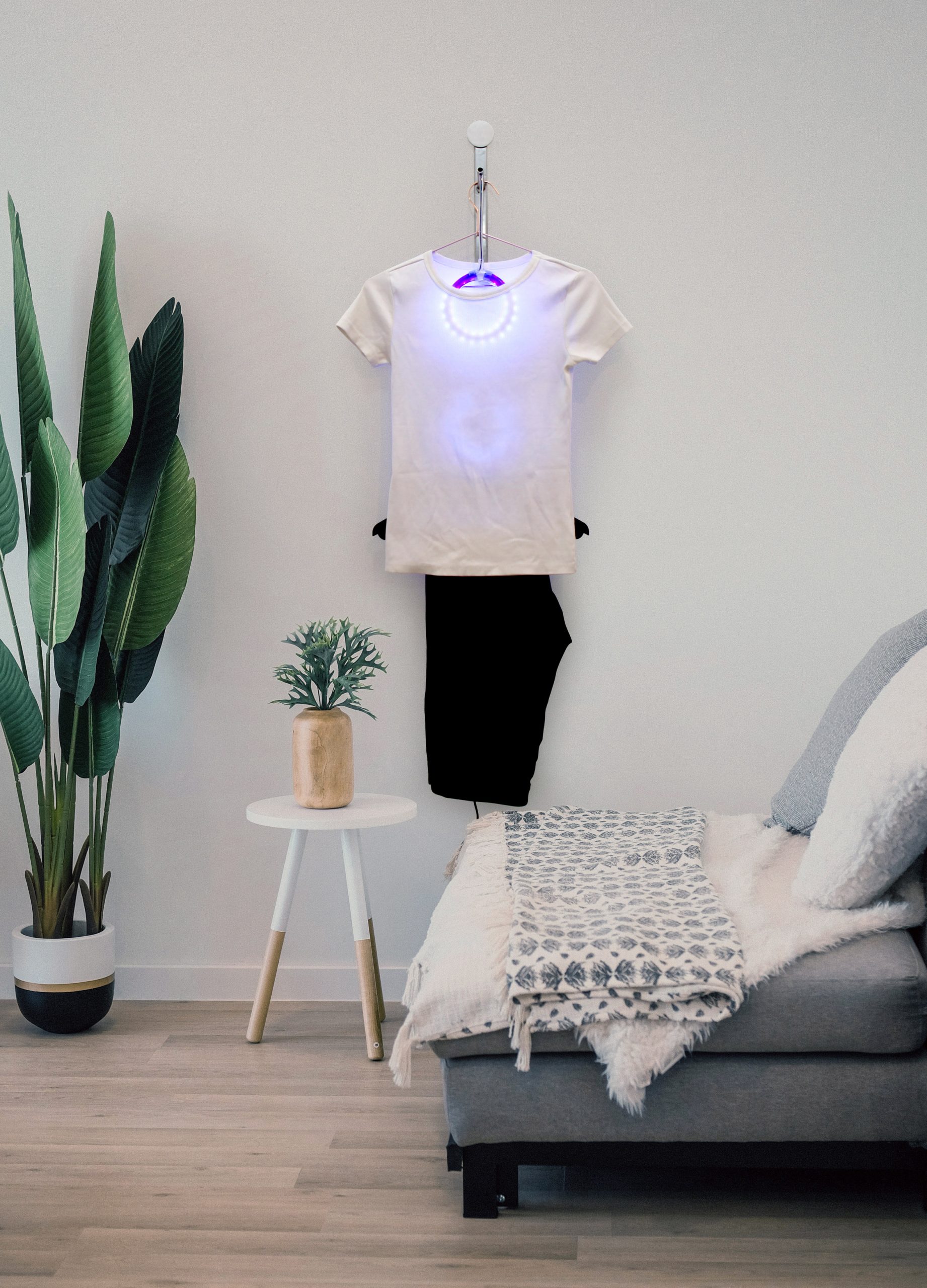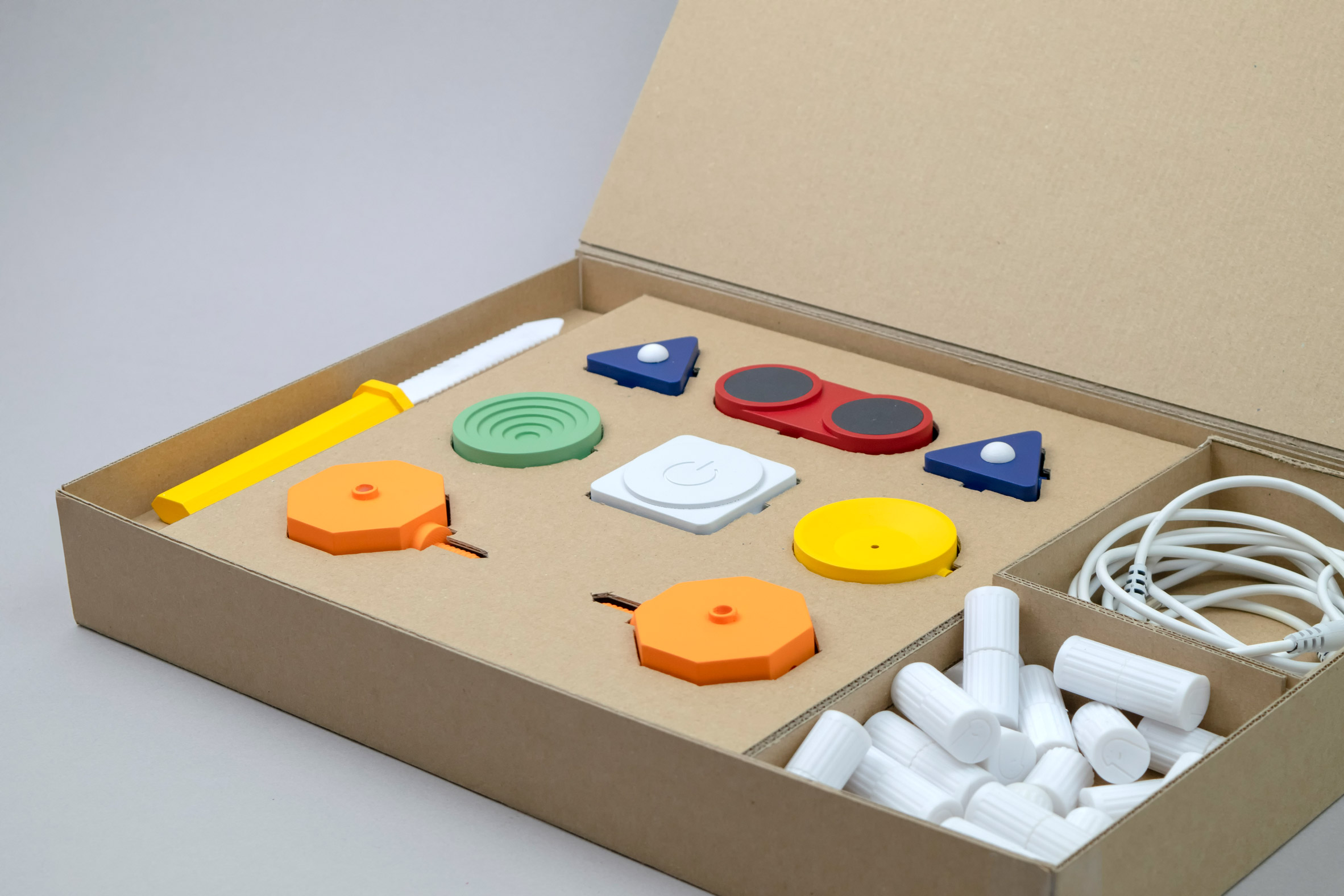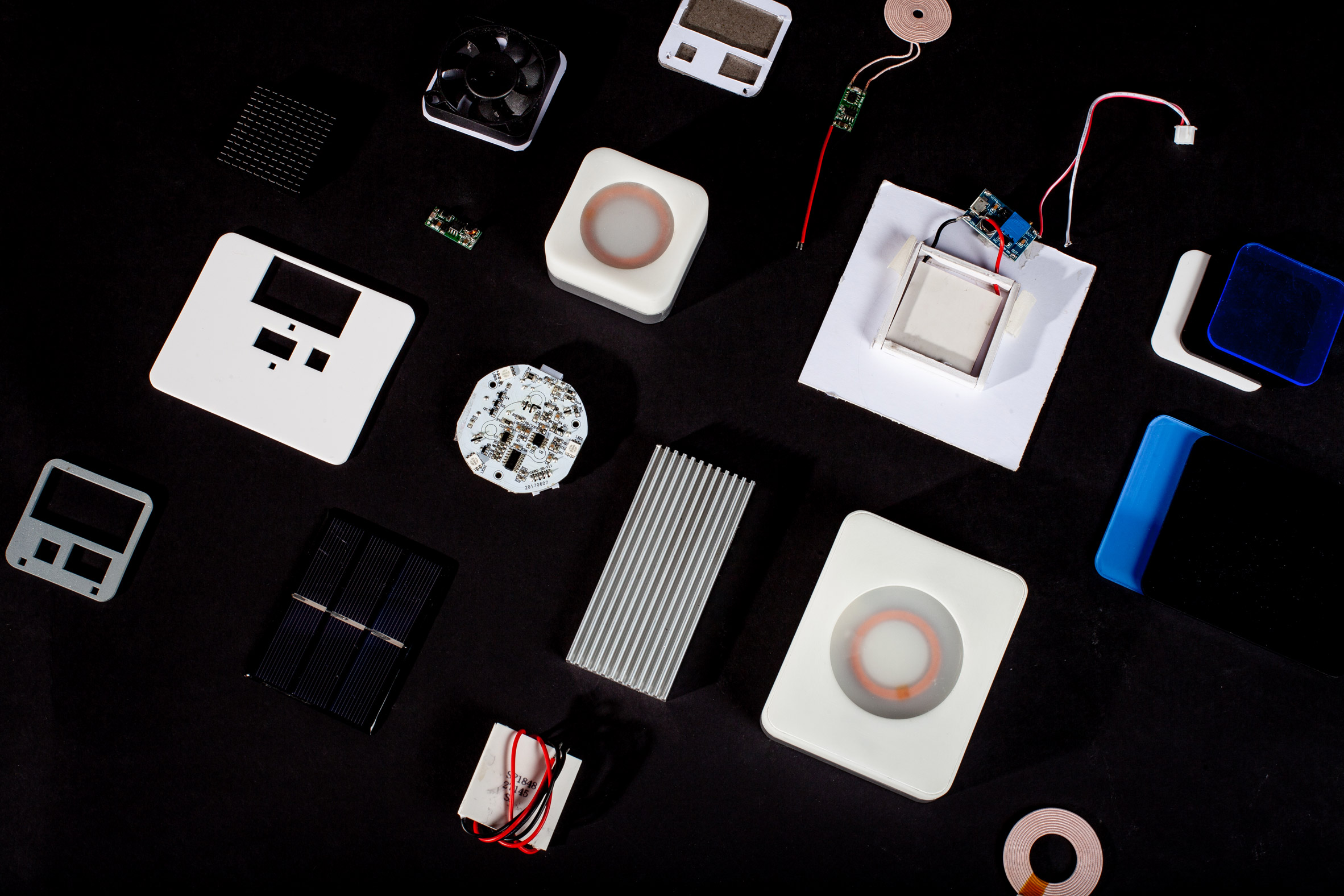Royal College of Art students and OPPO are exploring how to make design more human
The Royal College of Art and OPPO teamed up with Dezeen to host a panel discussion about how design students from the RCA are making technology more human. The panel explored a recent design collaboration between OPPO and students from the RCA's Design Products MA programme, who worked together on an exhibition of projects that The post Royal College of Art students and OPPO are exploring how to make design more human appeared first on Dezeen.


The Royal College of Art and OPPO teamed up with Dezeen to host a panel discussion about how design students from the RCA are making technology more human.
The panel explored a recent design collaboration between OPPO and students from the RCA's Design Products MA programme, who worked together on an exhibition of projects that address how technology can be further integrated into everyday life.
Responding to the exhibition's theme of "Humanising Technology", students worked closely with the OPPO London Design Centre, the brand's design hub, to develop projects that allow technology to "flow seamlessly into one's life".

Moderated by Alon Meron, Design Products tutor at the RCA, the panel discussed the philosophy behind the brief which the head of the OPPO London Design Centre Jintong Zhu explained was about "humanising technology, not making humans more technological".
“[OPPO] believes technology should adapt to human life and not the other way around," Zhu said during the talk. "It shouldn’t scream for attention but be naturally integrated into products through design, and create intuitive experiences for end users.”
The panel also discussed the benefits of technology brands and the educational sector collaborating, which Meron puts down to students challenging the norm in corporate environments to push the future of design.
“As students it is almost your duty to ask the difficult questions and try to expose everything that is not sustainable or just plain wrong about the world we live in," Meron stated during the panel.

The panel also addressed the importance of sustainability in design and how the RCA pivoted to take their yearly graduate show online in the wake of the coronavirus pandemic.
Panellists included Paul Anderson, dean of the RCA's School of Design and Ashley Hall, professor of Design Innovation and head of postgraduate research at the RCA's School of Design.
Also on the panel was Zhu who is an RCA School of Design alumni, and Roberto Ruffoni, design research manager at the OPPO London Design Centre.
Matthieu Muller, a graduate of the Design Products postgraduate course this year, also joined the panel, as well as Anne-Marie Heck, who graduated from the programme in 2019 and took part in the first collaboration between the RCA and OPPO.
This is the second year that OPPO has collaborated with students from the Design Products masters programme.
 Lilin Jiao's project imagines that your phone can harvest energy from other electronic appliances in your home
Lilin Jiao's project imagines that your phone can harvest energy from other electronic appliances in your home
The first collaboration saw the students' work exhibited in the Ventura Future exhibition during Milan design week 2019, which led to Heck being offered an internship at the OPPO London Design Centre.
Projects from this year collaboration include a clothes hanger by Eric Saldanha, that uses UV light to clean and kill any secondary bacteria left on garments.
Among other projects in the exhibition is Animate by Matthieu Muller, a set of electronic building blocks that allow children to create moving objects and figures and aims to introduce technology as a tool for self-expression.
Also in the show is Nect by Lilin Jiao, a conceptual project that imagines how groups of home appliances could form electronic networks that can be used to charge other devices like mobile phones.
The projects designed by the students are included in RCA2020, the Royal College of Art's graduate show which was brought online in response to the coronavirus pandemic.
You can view the full list of projects in the exhibition at the RCA's online show.
The post Royal College of Art students and OPPO are exploring how to make design more human appeared first on Dezeen.
